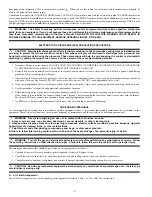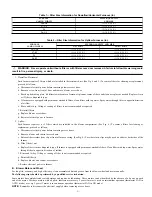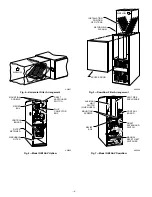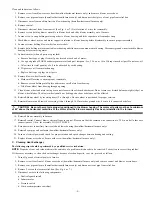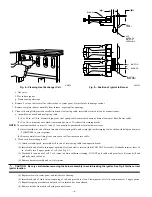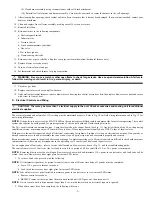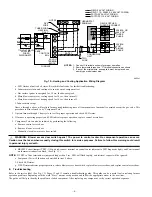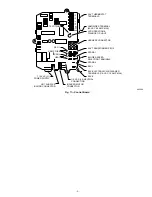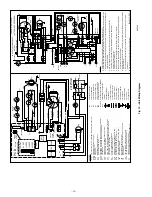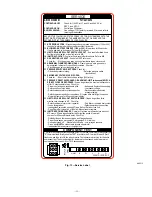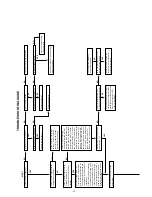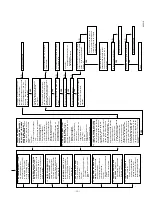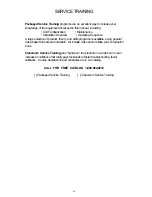
Recognize safety information. This is the safety-alert symbol
. When you see this symbol on the furnace and in instructions or manuals, be
alert to the potential for personal injury.
Understand the signal words DANGER, WARNING, and CAUTION. These words are used with the safety-alert symbol. DANGER identifies the
most serious hazards which will result in severe personal injury or death. WARNING signifies a hazard which could result in personal injury or
death. CAUTION is used to identify unsafe practices which would result in minor personal injury or product and property damage. NOTE is used
to highlight suggestions which will result in enhanced installation, reliability, or operation.
WARNING: The ability to properly perform maintenance on this equipment requires certain expertise, mechanical
skills, tools, and equipment. If you do not possess these, do not attempt to perform any maintenance on this equipment other
than those procedures recommended in the User’s Manual. FAILURE TO FOLLOW THIS WARNING COULD RESULT IN
POSSIBLE DAMAGE TO THIS EQUIPMENT, SERIOUS PERSONAL INJURY, OR DEATH.
ELECTROSTATIC DISCHARGE (ESD) PRECAUTIONS PROCEDURE
CAUTION: Electrostatic discharge can affect electronic components. Take precautions during furnace installation and
servicing to protect the furnace electronic control. Precautions will prevent electrostatic discharges from personnel and
hand tools which are held during the procedure. These precautions will help to avoid exposing the control to electrostatic
discharge by putting the furnace, the control, and the person at the same electrostatic potential.
1. Disconnect all power to the furnace. DO NOT TOUCH THE CONTROL OR ANY WIRE CONNECTED TO THE CONTROL PRIOR
TO DISCHARGING YOUR BODY’S ELECTROSTATIC CHARGE TO GROUND.
2. Firmly touch a clean, unpainted, metal surface of the furnace chassis which is close to the control. Tools held in a person’s hand during
grounding will be satisfactorily discharged.
3. After touching the chassis you may proceed to service the control or connecting wires as long as you do nothing that recharges your body
with static electricity (for example; DO NOT move or shuffle your feet, DO NOT touch ungrounded objects, etc.).
4. If you touch ungrounded objects (recharge your body with static electricity), firmly touch furnace again before touching control or wires.
5. Use this procedure for installed and uninstalled (ungrounded) furnaces.
6. Before removing a new control from its container, discharge your body’s electrostatic charge to ground to protect the control from damage.
If the control is to be installed in a furnace, follow items 1 through 5 before bringing the control or yourself into contact with the furnace.
Put all used AND new controls into containers before touching ungrounded objects.
7. An ESD service kit (available from commercial sources) may also be used to prevent ESD damage.
CARE AND MAINTENANCE
For continuing high performance and to minimize possible equipment failure, it is essential that periodic maintenance be performed on this
equipment. Consult your local dealer as to the proper frequency of maintenance and the availability of a maintenance contract.
WARNING: Never store anything on, near, or in contact with the furnace, such as:
1. Spray or aerosol cans, rags, brooms, dust mops, vacuum cleaners, or other cleaning tools.
2. Soap powders, bleaches, waxes or other cleaning compounds, plastic or plastic containers, gasoline, kerosene, cigarette
lighter fluid, dry cleaning fluids, or other volatile fluids.
3. Paint thinners and other painting compounds, paper bags, or other paper products.
A failure to follow this warning could result in corrosion of the heat exchanger, fire, personal injury, or death.
WARNING: Turn off the gas and electrical supplies to the unit before performing any maintenance or service. Follow
the operating instructions on label attached to furnace. A failure to follow this warning could result in personal injury.
The minimum maintenance that should be performed on this equipment is as follows:
1. Check and clean air filter each month or more frequently if required. Replace if torn.
2. Check blower motor and wheel for cleanliness each heating and cooling season. Clean and lubricate as necessary.
3. Check electrical connections for tightness and controls for proper operation each heating season. Service as necessary.
CAUTION: As with any mechanical equipment, personal injury can result from sharp metal edges, etc., therefore, be
careful when removing parts.
A.
Air Filter Arrangement
The air filter arrangement may vary depending on the application. Refer to Table 1 or 2 for filter size information.
—2—
Summary of Contents for GB1AAV
Page 15: ...15...


